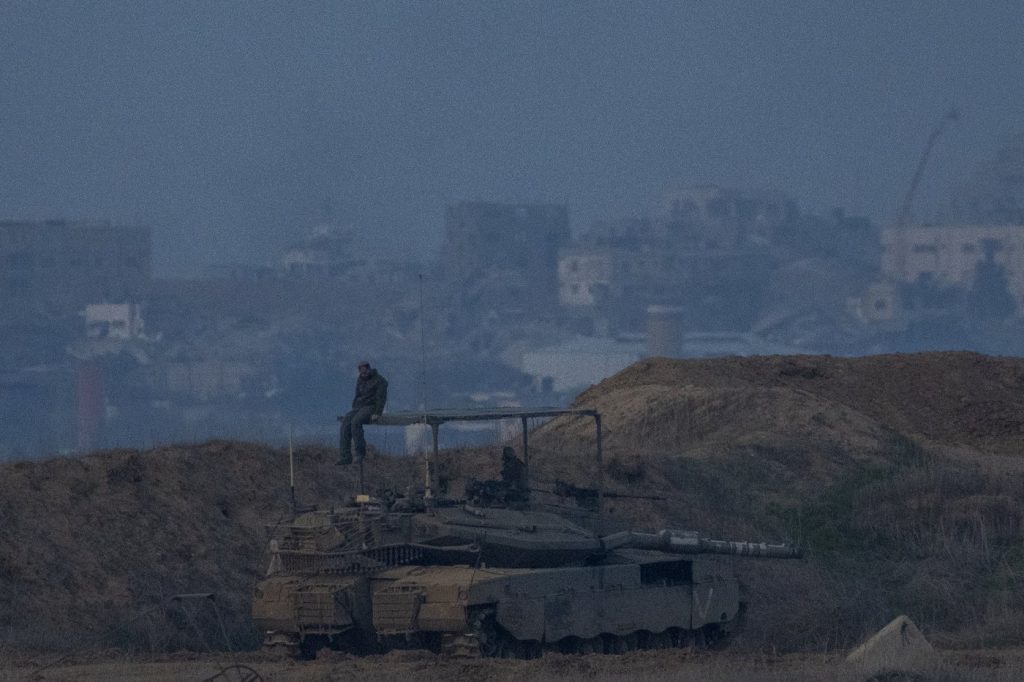JERUSALEM, Israel (AP) On Friday, Israel's security cabinet convened to deliberate on a potential deal for releasing dozens of hostages held by militants in Gaza while considering a pause in the ongoing war, which has lasted for 15 months. If approved by the cabinet, the deal would subsequently require final approval from the government before a ceasefire could take effect.
U.S. President Joe Biden, alongside the key mediator Qatar, announced the deal on Wednesday, which intends to secure the release of numerous hostages in Gaza and to gradually de-escalate the conflict that has sparked major unrest throughout the Middle East and led to global protests. However, complications arose earlier, prompting Prime Minister Benjamin Netanyahu's office to indicate that there were last-minute issues with finalizing the agreement. Initially, the security cabinet vote had been postponed on Thursday due to disputes with Hamas regarding the deal's terms.
Following a pre-dawn statement that seemed to pave the way for the cabinet vote, Netanyahu mentioned that he had directed a special task force to prepare for the hostages' reception upon their return from Gaza. Families of the hostages were informed of the deal's progress, and the Prime Minister's office stated that should the deal be approved, a ceasefire could commence on Sunday with the first hostages being released.
According to the terms of the agreement, 33 out of approximately 100 hostages currently held in Gaza are scheduled to be released over the next six weeks in exchange for the liberation of hundreds of Palestinians imprisoned by Israel. Additionally, Israeli forces would withdraw from numerous areas, allowing hundreds of thousands of Palestinians to return to what remains of their homes. There would also be a significant increase in humanitarian assistance to the region.
The remaining hostages, including male soldiers, are expected to be released in a more complex second phase of negotiations during the course of the initial agreement. However, Hamas has stated that they will not release the remaining captives without a comprehensive ceasefire and the complete withdrawal of Israeli forces. In contrast, Israel has maintained its commitment to continue military operations until Hamas is dismantled and has reaffirmed control over the territory.
Looking to the future, several pressing concerns linger regarding the governance and reconstruction of Gaza post-conflict. The potential agreement has faced strong opposition from Netanyahu's far-right coalition partners, critical to his governance. Notably, Israel's right-wing national security minister, Itamar Ben-Gvir, has signaled he may resign if the ceasefire is approved. On Friday, he expressed his stance on social media, indicating a heavy heart if the deal passes, which could destabilize the government at an essential moment.
Meanwhile, conflict persists in Gaza, as Israeli airstrikes reportedly killed at least 72 people on Thursday alone. Historically, militant groups have intensified military actions in the lead-up to ceasefire agreements in an effort to showcase their strength. This war had its roots in a cross-border attack initiated by Hamas on October 7, 2023, which resulted in about 1,200 Israeli fatalities and approximately 250 individuals taken as hostages. Israel retaliated with a vigorous military campaign that has resulted in the deaths of over 46,000 Palestinians, according to local health officials. However, these reports typically do not differentiate between combatants and civilians, although it is claimed that women and children represent over half of those killed.
As the situation unfolds, the world watches with bated breath for the outcomes of the proposed deal and its broader implications for peace and stability in the region.










